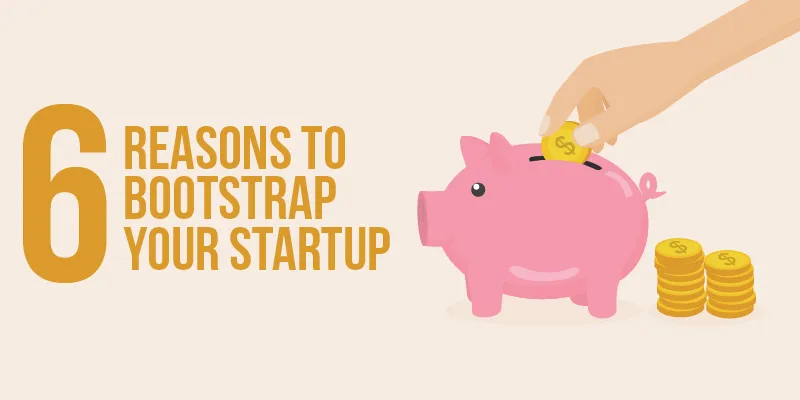Why I chose to self-fund my startup
I launched my startup some time ago with my own savings. I still recall those days when I was the only employee and people joked about it, calling it a “one woman show”. Many so-called ‘well wishers’ suggested that I go for investor funding and some keep telling me that even today. Through this post, I wish to respond to them and, also, let aspiring women entrepreneurs know that funding is not always necessary to pursue your dreams. All that is required is the hungry and confident you. There is always a way out and, also, a downside to funding, about which many of us are not aware. I still feel bootstrapping is the best way to further your startup dreams, especially during the early days. Here are some reasons why I feel bootstrapping is particularly advantageous.

1. Your focus is on earning revenue
As a bootstrapped startup, we usually don’t have excess money in our bank account for year-long runways. Thus, the entire focus stays on optimising the available bank balance and forgoing the luxuries of life. In the initial days, you might choose to stay in a small flat, so that your startup can survive for one more month. Bootstrapped startups are forced to work on a revenue model that aims for growth from day 1, as their prime focus. Personally, I feel that if you do not have a viable and concrete revenue model as a startup founder, then perhaps you have not actually thought through the product or service that you plan to deliver.
2. Time doesn’t go to waste looking for investors
Fundraising is a tedious process. I have closely watched many startups spend precious time finding and meeting investors and preparing for pitches. During this course, they loose focus on the product and customers. My take on this is that, for an early stage startup, fundraising is an epic waste of time – time that could otherwise be used for developing more leads, improving the product, collecting feedback, or marketing. In a startup founder’s life, each minute wasted has a ripple effect and limits productivity in other important areas.
3. Not answerable to others
If someone is investing in your company, you owe your freedom to them. This relationship is not a one-day chore. In fact, it continues throughout the time that your company is in business. For me, it is like having a boss again, where you are required to report on progress, consult with them on major decisions, and involve them at every step. It becomes a little ‘over the top’ when a few of the investors start to micro-manage you. Have you ever wondered about this? The whole idea of becoming an entrepreneur is to get rid of a boss, so then why get into the same loop again by getting investors? Not to mention that, as a startup founder, you are the decision-maker!
4. Value of money
As a bootstrapped startup founder, you will realise the importance of money and that every penny counts. You look for ways to cut down on expenses and minimise your outings. Even when it comes to your office, furnishings, resources, and operational stuff, you are likely to go for the cheapest option and spend wisely.
5. Organic growth
When you don’t have extra money to shell out on apps, marketing or anything that will buy customers temporarily, you will necessarily have to drive growth organically. And if you are doing what you love, it will be your passion that will attract customers to you, not money.
6. Learn the hard way
Learnings for a bootstrapped founder are far from what you can expect. When I started Ghoomo Phiro, I could not afford highly paid marketing professionals or business development folks, and so had to learn these functions on my own and hone my skills at multitasking. I could feel the evolution in my personality and experience, and the journey has indeed been enriching.
Bootstrapping makes you look at things in a holistic way and perspectives can change across different domains. I always love traveling, but Ghoomo Phiro taught me how it can be made more fun with others, what different revenue streams can be figured out in the industry, and how to create my USP.
To conclude, I would encourage others to work on your startup to make it profitable and grow it to the extent that investors will be more than keen to invest in you. This way, as a startup founder, you can always walk away from investors if your conditions are not met, and you will always have the upper hand and a more enriching experience.







